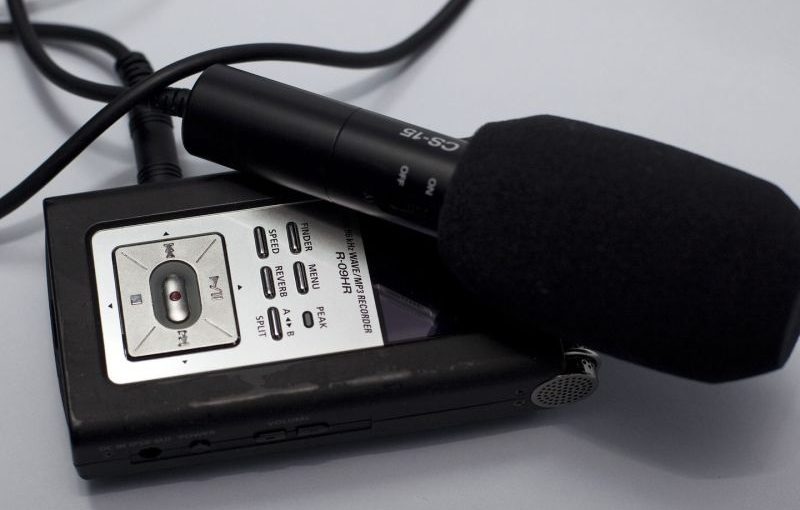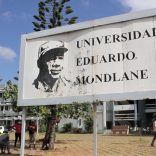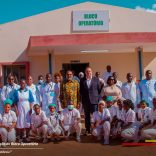Mozambique: Cabo Delgado, Nampula & Niassa Humanitarian Snapshot, as of August 2025
Mozambique: “The press is being ambushed”

Picture: DW
The Mozambican president recently asked journalists for unity and patriotism. Fernando Lima replies that the media is being “assaulted” with legislation and rules that increasingly restrict the profession.
President Nyusi of Mozambique stated, regarding the Day of the Mozambican Journalist on April 11, that “the Mozambican journalist should not be a reproducer of wishes contrary to our unity”, and suggested that “journalism should be a vehicle for the transmission of trustworthy information, the values of patriotism”.
However, the principles of the profession do not stipulate unity or patriotism, but values such as truth and independence. Invited to comment on President Nyusi’s appeals, media expert and member of the Mozambican branch of the Media Institute of Southern Africa, MISA-Mozambique Ernesto Nhanale said that the president “made the statement very much from the perspective of what interests him, which is the image of governance he wants to build”.

“When he says this, it is not from the point of view of the need to guarantee truth and pluralism. He is making an assessment of the journalism that has been covering topics which have been damaging his image. The analysis and the pronouncements of the head of state have this tendency of bias, trying to put journalism at a level where good journalism is the one that reports in favour of the government,” Nanhale argues.
The statesman’s requests come at a time when journalists are generally deprived of free exercise of their profession in the context of terrorism in Cabo Delgado. The meagre coverage of the situation is carried out under the eye of the authorities, with media organs handpicked, triggering complaints of exclusion on the part of the national private press. In this particular aspect there is no unity, but Filipe Nyusi asks for it in regard to others.
Press under assault
Journalist Fernando Lima, owner of the Savana weekly, questions the statesman’s request. “I find this controversial and problematic. What is the unity that we should have? With the corrupt, with thieves and the dishonest? Or with the people who want development, who are courageous, who don’t run away from the fighting? ”

“What does it mean to be a patriot? Is it to fight for there to be more and more exclusion in the country?” Lima asks. “It is very difficult to have this type of consensual agenda when journalists are being assaulted through the back door, ambushed by legislation and regulations that increasingly restrict their profession.”
In times of war, political power shows signs of wanting to pressure the media to disengage itself from the ethical and deontological principles that guide the activity in favour of following other agendas. How can journalists deal with the situation?
“Musty nostalgia”
“I still believe that there can be a frank conversation with political power,” Lima says. “Sometimes it seems to me that there is still a lot of ignorance about the values and pillars of journalism. But I think there is also a great deal of misunderstanding regarding the definition of journalism itself. There is no Mozambican journalism, American journalism, German journalism; there is just journalism.”
For these reasons, Lima sees signs of retrogression in the practice of journalism, identifying what he considers a “musty nostalgia that wants to take us back to the past, to the time of the single party, of repression, of coercion over the media”.
Filipe Nyusi on April 11 did not however fail to acknowledge the role of journalists in times of Covid-19, and even in the context of terrorism and armed attacks by the Renamo dissident ‘military junta’ in the centre of the country, praising them for their “rigour, professionalism and patriotism”.












Leave a Reply
Be the First to Comment!
You must be logged in to post a comment.
You must be logged in to post a comment.